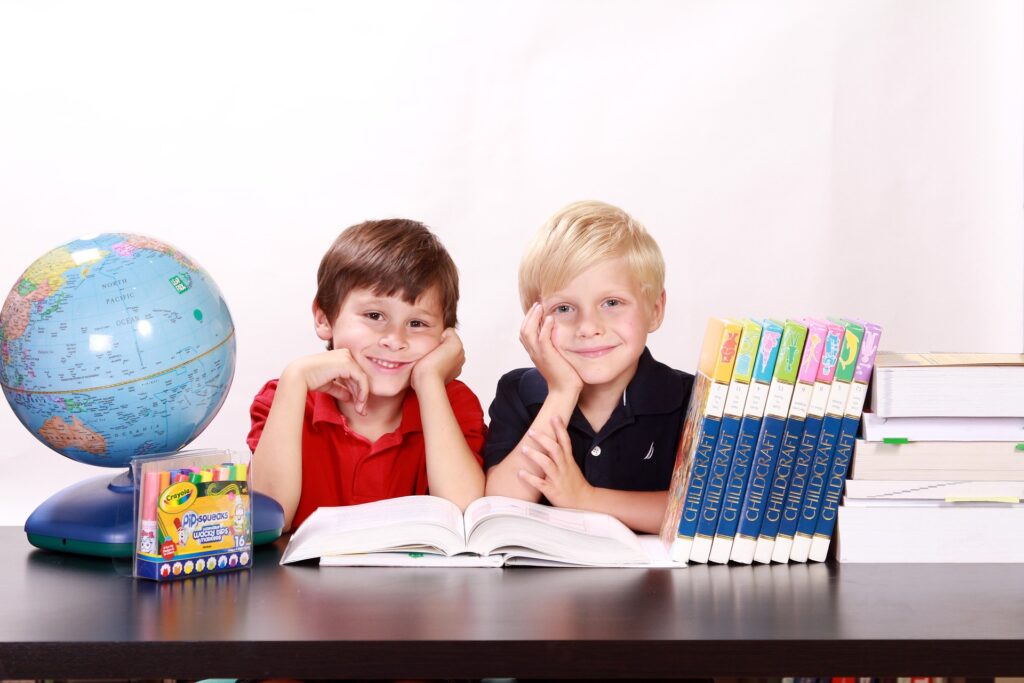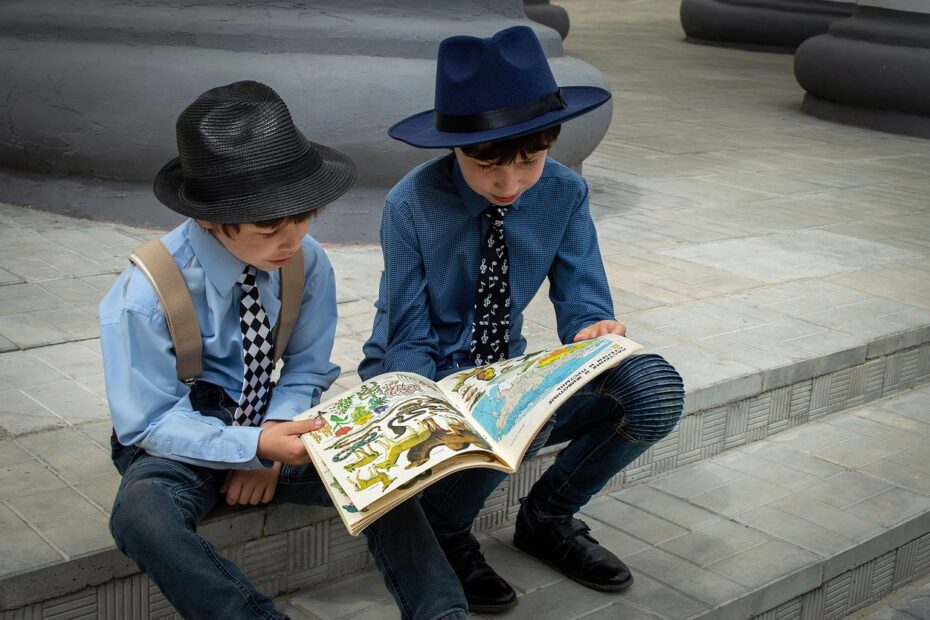Gifted children with learning disabilities are the most undervalued, misunderstood, and ignored part of the student population and the community. Teachers, school counsellors, and other adults often miss signs of intellectual talent because they are more interested in problems like bad spelling, reading, and writing.
Do gifted children have learning disabilities? In this article, We will answer this question and lots more. This article will help teachers discover and understand gifted children with learning disabilities (GLD).
Lastly, teachers and parents will find tips on improving education and relationships to meet the gifted kids’ expectations and unique needs.

What Is A Learning Disability?
A learning disability (LD) is a condition that affects a person’s ability to learn. It can be an inherited condition, a result of a neurological disorder, or the result of a developmental disorder. Many people with LD have difficulty with reading, writing, math, and other aspects of school. LD can also affect a person’s ability to think and solve problems. GLD is a condition that needs treatment and monitoring.
What Are The Signs That A Child May Have A Learning Disability?
There are many signs that a child may have a learning disability. Sometimes, a child may have trouble reading, writing, doing math, or doing other schoolwork. Other signs may include trouble staying on task at school, following directions, and making friends. If you are concerned your child has a learning disability, get them evaluated by a professional.
There are several signs that a child may have a learning disability. Some of the most common signs include:
- Problems with reading and writing.
- Difficulty understanding complex instructions.
- Difficulty following multiple directions at once.
- Poor concentration.
- Poor memory.
- Poor problem-solving skills.
- Difficulty understanding jokes.
- Difficulty understanding sarcasm.
How To Identify Gifted Children With Learning Disabilities
The gifted children with learning disabilities are called gifted learning disability (GLD) or “twice exceptional” (2e), or “double tagged.” Some of their problems could be ADD/ADHD, dyslexia, problems with processing, Asperger’s syndrome, and physical and emotional problems.
These children might be in gifted or remedial programs, yet their intellectual giftedness is overlooked. To identify gifted children with learning disabilities, watch out for these characteristics:
- Superior vocabulary
- uninhibited voicing of thoughts
- and an uncanny sense of humor (e.g., sophisticated use of metaphor)
- Exceptionally creative
- Extreme sensitivity and intensity Extreme inventiveness
- Insightful observations
- Exceptional problem-solving and reasoning abilities. Interested in the “big picture.”
- Students with outstanding recall and understanding in a particular aptitude in a consuming interest area
- A diverse variety of interests unrelated to school learning
- GLD children sometimes need help in recognition.
The most common and essential thing about a child with GLD is that they do poorly in school for no apparent reason. They may do very well in academic activities outside school, but this will not appear in their school evaluations.They might do well on multiple-choice tests but need help writing answers on a blank sheet.
Also read guide on how to identify a gifted child here
Others may succeed vocally but struggle with written assignments. Identification of these children is difficult since they often fall into three categories:
- Those whose intellectual aptitude is recognized but whose impairment is shown at the increase in the complexity of their homework
2. Students not labeled as talented or as having a learning problem since their performance is average
3. Diagnosed students with learning disabilities enrolled in a learning support program whose intellectual giftedness is not recognized.
To make things even more complicated, the ways to find out if someone is gifted or has a learning disability are not the same. Schools usually have a gifted education coordinator, whose job is to meet the needs of smart kids, and a special needs team, whose job is to help kids who have trouble learning. Their functions are exclusive to these two groups, and there is little overlap or collaboration between them.
What Are The Treatments For A Learning Disability?
There are many treatments for a learning disability, but the most common are:
Special education:
Special education is a program for children with learning disabilities to learn in a way tailored to their specific needs. the program is designed to meet the specific needs of a gifted child. In some cases, gifted students require a more individualized education than their peers to maximize their potential.
One of the most important things that a gifted student need is an individualized education plan (IEP). This document outlines the student’s specific needs and the specific educational programs and services necessary to meet those needs. It is important to remember that an IEP is not a guarantee of success but is an important tool in helping gifted student reach their full potential.
Rehabilitation:
Rehabilitation helps children with learning disabilities get better at things so they can participate more in life. What is rehabilitation of a gifted child? There is no one answer to this question, as the needs of a gifted child will vary depending on their individual strengths and weaknesses. However, the following are some general pointers that may be useful in the rehabilitation of a gifted child: Help the child to
Help the child develop a strong work ethic and discipline.
Develop coping mechanisms and problem-solving skills.
Build self-confidence and self-esteem.
Learn how to manage stress effectively
Encourage the child to explore their
Support and encourage the child’s natural creativity and intellect.
There are many treatments for a learning disability. Some treatments may include special education, accommodations, medication, and therapies.
What Are The Effects Of Having A Learning Disability?
There are a few significant effects of having a learning disability. Individuals with learning disabilities often experience difficulty with task management, organization, and focus. They may also have difficulty with reading, writing, and retaining information.
This can make it difficult for them to succeed in school, find a job, or even manage their personal lives. Many different effects can come from having a learning disability. Some of the most common effects are:
Difficulties with reading, writing, and math;
Communication difficulties
Challenging with people with self-esteem;
Problems with social interactions;
Find it difficult to participate in everyday activities.
Some of the effects of a learning disability can be very serious and significantly impact a person’s life. Seeking help if experiencing any of the effects listed above is essential. Many resources are available to help people with learning disabilities, including schools. Children with GLD may struggle to make sense of their great intellectual potential and impairment.
They start to doubt their talents and grow frustrated. GLD students who don’t know who they are or don’t have support tend to think they are “just stupid” and stop trying. Failure to recognize GLD youngsters might cause them to give up. They may be labeled as lazy by teachers. Because of this, students continue to not do well in school, not be motivated, misbehave and be unhappy with school.

Long-term consequences include:
- School refusal.
- Dropout.
- Social and family problems.
- Persistent underemployment.
- A low socioeconomic position.
- Significant mental health issues.
What Are The Cognitive Challenges Of Gifted Children With Learning Disabilities
The cognitive challenges of gifted children with learning disabilitiea are as follows:
- Differences in verbal and nonverbal performance skills
- Academic skills that are deficient or very unequal
- Problems with auditory, perceptual, or visual perception
- Long-term and short-term memory issues
- Clumsiness, bad handwriting, or difficulty performing delicate motor tasks indicate perceptual-motor impairments.
- Slow reactions; kids may appear to work and think slowly.
- a lack of organizing and study abilities; frequently disorganized
- Directional difficulties; nonlinear thinking
- Students lose up on projects fast; because of the risk of being wrong or making mistakes.
- a lack of academic ambition; appearing intellectually uninterested; avoiding school obligations; regularly failing to finish homework
- blaming others for their difficulties
- Distractibility; trouble sustaining concentration over extended periods
- Difficulty managing urges; Poor social skills: pupils may engage in antisocial conduct.
- Excessive sensitivity to criticism
- Inability to objectively assess one’s strengths and deficiencies
- Giftedness and Learning Disability Markers
- Poor memory for specific facts but a strong understanding
- Preference for complex and intricate topics; easily distracted.
- a lack of self-control and goal-setting techniques
- boredom from rote or memorizing work, although frequently chaotic
- Reading, writing, and spelling difficulties, but good conversational language abilities
- Capability to manipulate people and events, yet needing to improve interpersonal skills.
- Poor performance on simple addition and subtraction facts, yet capable of complicated conceptual manipulations such as algebraic concepts
- Strong sense of humor but the inability to choose when to use it
- Deep insights, yet unable to recognize cause and effect relating to own actions
Also read challenges of a gifted child here
These results have a domino effect that breaks up families, makes parents pay more money, wears out support staff, and lowers the quality of life for everyone involved. In my study, I met with one such child who informed his parents about what he thinks about school. You have no idea how I feel when you bring me here, said the child
Bringing me here is like a nuclear bomb exploding in my stomach as it travels through my mind, making me unable to think and glueing my hands from moving them. Gifted children are commonly misunderstood when they have learning disabilities
Some educators, on the one hand, use the child’s giftedness to “prove” that the child does not have any genuine learning problems. Others believed learning disabilities in children is a sign of non-giftedness. What can parents do? The inability to recognize these children originates from the federal and state government’s failure to ensure that instructors obtain training that allows them to identify and satisfy the educational requirements of these children.
The community, university, teachers, and institutions must understand GLD children enough and consistently. Early diagnoses will help procure treatment for the child, helping them reach their full potential.
Read more of our articles here: https://abundanceandkiddies.com/
Treatment for Children with Anxiety
Children Sweaters and Winter Wears
